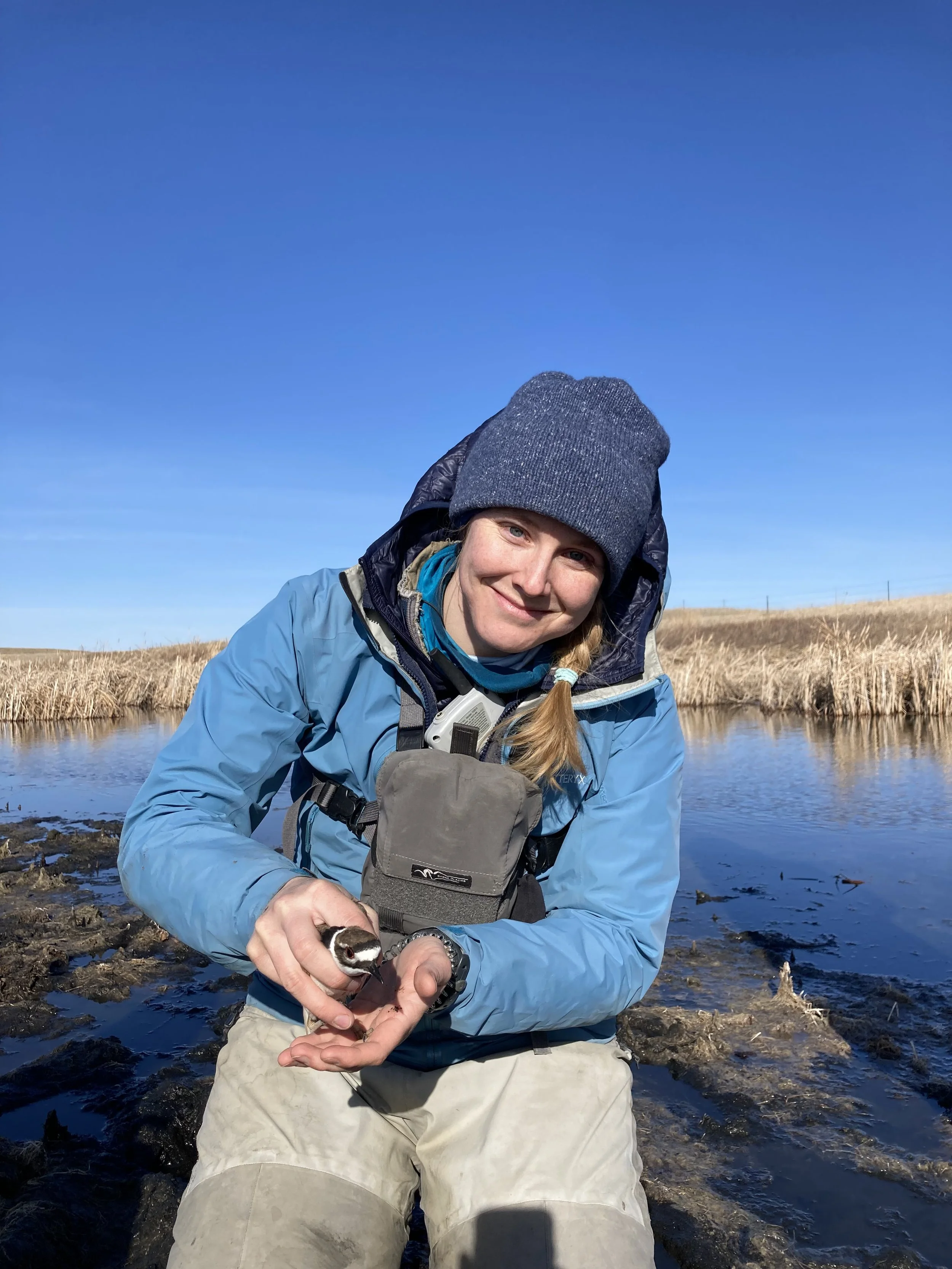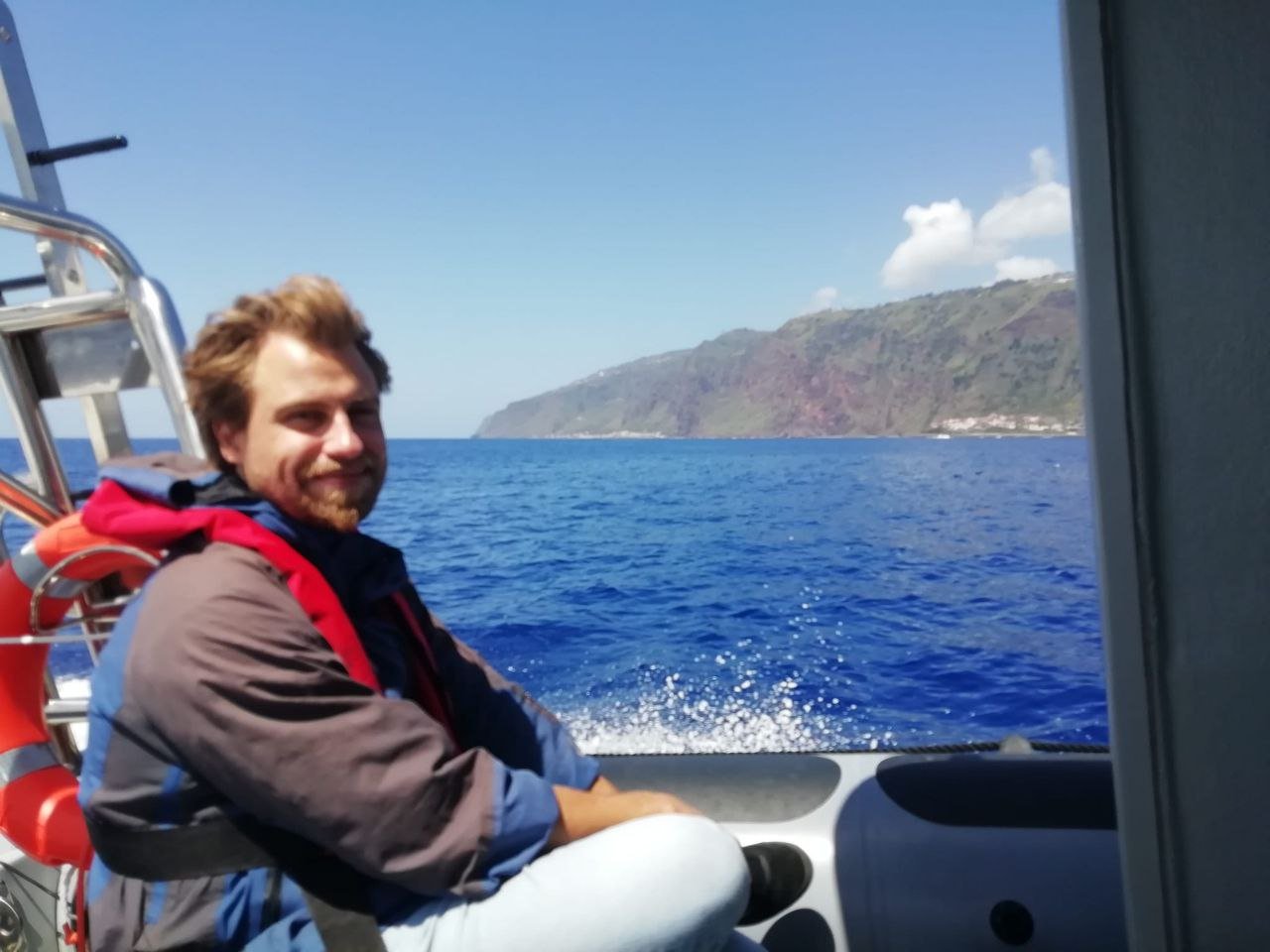-
Bayesian methods for analyzing data are now widely used in ecology and wildlife management. The Bayesian approach involves specifying the “prior” distribution, which represents the uncertainty about the model parameters before we collect the data, and the likelihood, which represents the plausibility of different parameters values based solely on the data. These are combined via Bayes’ Rule to obtain the “posterior” distribution for the parameters, which represents the uncertainty about the parameters after we have analyzed the data. Using the Bayesian approach gives you more flexibility in the type of models that you can fit, compared to the classical frequentist approach, as the model is typically specified in the same way that you would write it down mathematically. Once you have become familiar with fitting a Bayesian model in R, you will appreciate the extra flexibility and the more intuitive way in which the results can be presented.
-
Learn at your your own pace with or without instructor support (see Online Course Format Chart below for details).
Winter: December 1, 2025 – February 22, 2026 (Early bird ends November 2nd)
Spring: March 2 – May 24, 2026 (Early bird ends February 1)
*Early bird saves $75
-
Experience with the basics of probability, statistical methods (e.g., Introduction to Ecological Statistics and Modeling & Generalized Linear, Additive, and Mixed Models), and using R to fit statistical models.
-
TOPICS
Why use the Bayesian approach to data analysis?
Motivating examples
Prior distribution and Likelihood
Bayes’ Rule and the posterior distribution
Exercises with solutions on using Bayes’ Rule
Introduction to Markov chain Monte Carlo methods for implementing Bayes’ Rule
Introduction to rjags, an R package for fitting Bayesian models
Bayesian normal linear models
Exercises with solutions on Bayesian normal linear models
Bayesian generalized linear models
Exercises with solutions on Bayesian generalized linear models
Bayesian hierarchical models
Exercises with solutions on Bayesian hierarchical models
Bayesian model checking and comparison
Overview of R packages for Bayesian data analysis
Bayesian vs frequentist approaches to data analysis
LEARNING OUTCOMES
Be able to describe the advantages and disadvantages of the Bayesian approach
Understand the basic theory underlying the Bayesian approach
Know how to fit normal and generalized linear hierarchical models in R using “rjags”
Understand how to check lack-of-fit of a Bayesian model, and how to compare Bayesian models
Clearly describe the results you obtain after fitting a Bayesian model
Have a good overview of R packages for Bayesian data analysis
COURSE OPTIONS & INFORMATION (Review chart above, then click below)
-
FORMAT:
3 months of access to course materials as you work at your own pace
CONTINUING EDUCATION:
16 CEUs with The Wildlife Society
4 CEUs in Category I(a): Scientific Education and Training with the Ecological Society of America
Go to our Continuing Education Page for more details
-
FORMAT:
3 months of access to course materials as you work at your own pace
Get instructor support for the 3-month term via email, discussion threads, group meetings, and one-on-one appointments
After working through the course materials, set up an optional 1-hr meeting with the instructor to discuss your own personal project from work or school
CONTINUING EDUCATION:
16 CEUs with The Wildlife Society
4 CEUs in Category I(a): Scientific Education and Training with the Ecological Society of America
Go to our Continuing Education Page for more details
CERTIFICATIONS:
Earn 1 credit toward certification as an Ecologist (at any level) with Ecological Society of America
Earn 1 credit toward certification as an Associate/Certified Wildlife Biologist® (at any level) with The Wildlife Society
-
FORMAT:
12 months of access to course materials as you work at your own pace
Get instructor support for the 3-month term via email, discussion threads, group meetings, and one-on-one appointments
After working through the course materials, set up an optional 1-hr meeting with the instructor to discuss your own personal project from work or school
CONTINUING EDUCATION:
16 CEUs with The Wildlife Society
4 CEUs in Category I(a): Scientific Education and Training with the Ecological Society of America
Go to our Continuing Education Page for more details
CERTIFICATIONS:
Earn 1 credit toward certification as an Ecologist (at any level) with Ecological Society of America
Earn 1 credit toward certification as an Associate/Certified Wildlife Biologist® (at any level) with The Wildlife Society
Earn 1 credit towards a professional certificate in Applied Quantitative Ecology with CWS
ACADEMIC CREDIT:
Earn 1 academic credit (go to our Academic Credit Page for details)
Earn an additional 1-2 academic credits with an Applied Project
INSTRUCTOR
PROMOTIONAL VIDEO
“This course is a great first step in understanding the applications of Bayesian analysis in the field of ecology. The model frameworks and corresponding R code paired with real-world study examples demonstrated the relevance of these methods and will help inform my approach to data analysis in future studies.”
Jacob Hewitt
Graduate Student, SUNY Brockport
“This course is a great introduction to Bayesian statistics for those who want to apply it in the Environmental Sciences. I loved the combination of recorded lessons and face to face sessions, being able to learn at my own pace, and at the same time getting consistent feedback from the instructor, who was willing to help with lecture material and my own projects. Also, the course includes some theory in the introductory part that was really helpful - something that other courses lack and that I really appreciated having.”
Sonia Cebrián-Camisón
PhD Student at Doñana Biological Station (EBD-CSIC), Spain
I've been trying to learn Bayesian statistics for a while and was having trouble finding good resources that were beginner friendly and had step by step explanations that would help me apply the techniques to my own project. This course was very accessible, and I appreciated the attention to detail, the combination of lecture and R tutorials, and the flexibility of the schedule. I feel much better equipped to tailor these methods to my own projects now.
Arin Underwood
Wildlife Biologist
"Before taking this course, as an ecologist, I found Bayesian statistics somewhat intimidating, but the lectures and hands-on coding exercises made the concepts much more accessible. The structured approach, starting from the fundamentals and progressing to real-world applications and ecological distributions, gave me the confidence to apply Bayesian methods to my own PhD research. This course was the perfect kickstarter for starting to develop a Bayesian mindset, and I now feel much more comfortable working with my own ecological data. Highly recommended for anyone looking to to get started in Bayesian statistics for ecology!"
Moritz Klaassen
PhD student, MARE-Madeira and the University of Lisbon
SCHOLARSHIPS
Full scholarships are available to participants from countries designated as “lower income” and “lower middle income” in the World Bank List of Economies. Please see our CWS World Scholars Program page for details.
CANCELLATION POLICY
Cancellations 30 days or more before the start date are not subject to cancellation fees. Cancellations <30 days before the start date are subject to a 50% cancellation fee. No refunds once the course begins.







